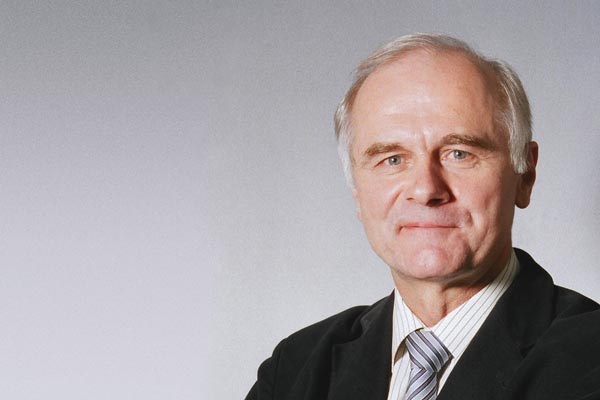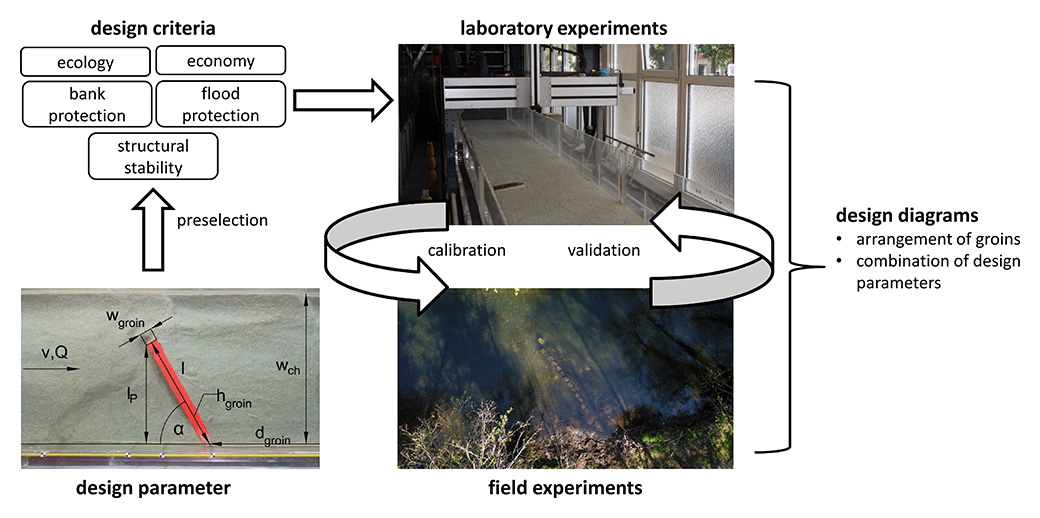Bank Structuring in Urban Environments through Micro Groins
Andreas Müller – Hector Fellow Franz Nestmann
Instream River Training is a form of river engineering in which the flow is modified by inducing one or more secondary currents in a way that bank and bed erosion is prevented. The steering platforms used here offer bank protection, cost savings and ecological advantages compared to classic longitudinal shoring. In this PhD-project, the resulting watercourse structuring is investigated in order to prove the suitability of steering platforms as a measure for the targeted creation of varied habitats in urban watercourses.
The European Water Framework Directive requires that all waterbodies achieve a good ecological status until 2027. In urban environments the restricted spatial conditions and different interests cause problems in river restoration. The present highly regulated rivers only offer uniform and monotonous habitats for fauna and flora. In contrast to that, natural watercourses are characterized by flow diversity and thus a large variety of hydraulic depths and river widths.
Instream River Training is a method of river engineering, in which the current is seen as the cause for bank erosion and bed erosion. Consequently, it is modified by inducing secondary flow. In order to achieve this, micro groins (submerged vanes) are installed in the river bed.
In this doctoral project, the changes of the bed structures are to be examined by laboratory experiments and field observations in order to quantify the suitability of micro groins as a mean to create diversely structured habitats in urban environments. The fluid mechanic principles will be developed in cooperation with a project in Vietnam funded by the Federal Ministry of Education and Research.
The aim of this doctoral project is to give specific recommendations concerning the design of micro groins and their measurements in order to maximize the ecological benefits of this construction method. The appropriate bank protection and economical criteria will be considered as well. The project is supervised by Hector Fellow Franz Nestmann.
Overview of the research project “Riverbed structuring in urban and spatially restricted environments through micro groins”
Andreas Müller
Karlsruhe Institute of TechnologySupervised by

Franz Nestmann
EngineeringHector Fellow since 2009


